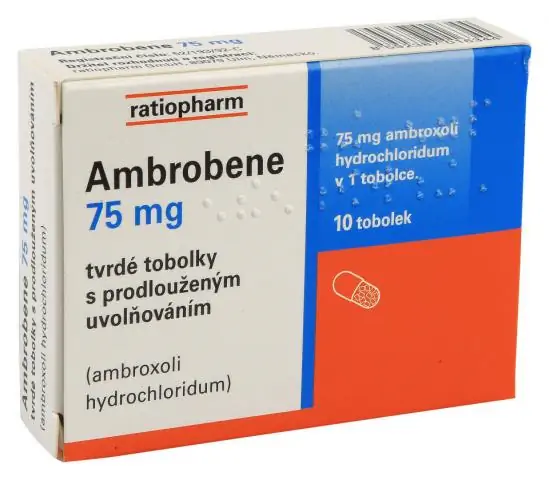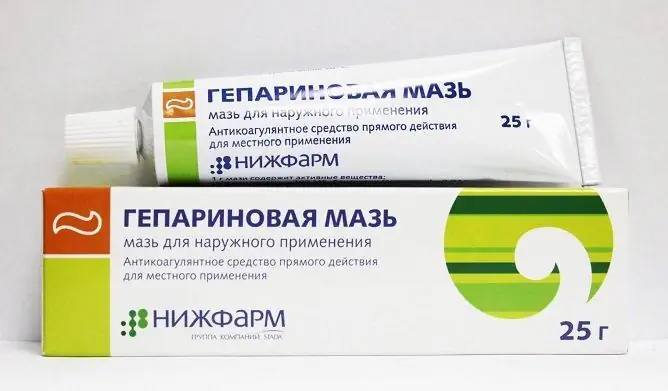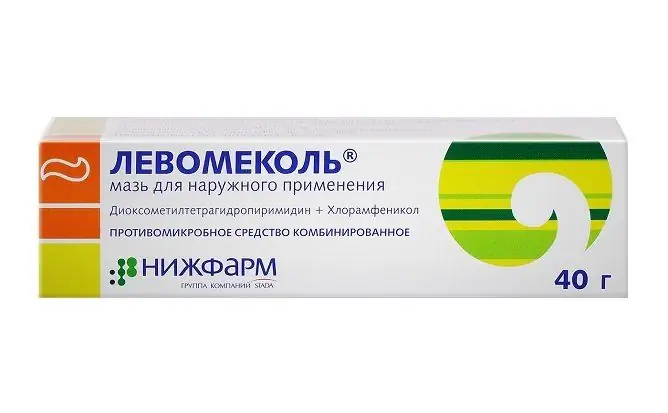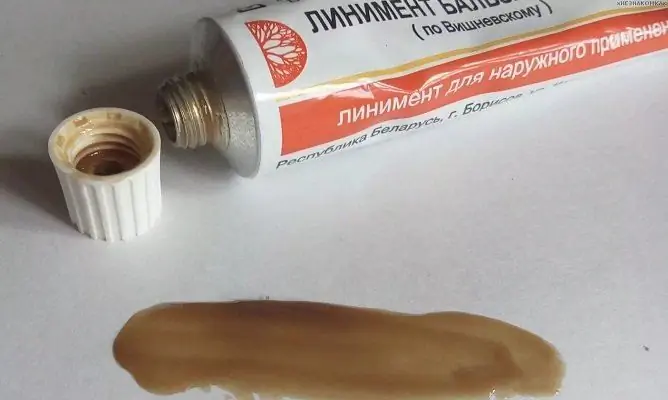Povidone iodine
Povidone-iodine: instructions for use and reviews
- 1. Release form and composition
- 2. Pharmacological properties
- 3. Indications for use
- 4. Contraindications
- 5. Instructions for use a: scab and dosage
- 6. Side effects
- 7. Overdose
- 8. Special instructions
- 9. Application during pregnancy and lactation
- 10. Use in childhood
- 11. In case of impaired renal function
- 12. Drug interactions
- 13. Analogs
- 14. Terms and conditions of storage
- 15. Terms of dispensing from pharmacies
- 16. Reviews
- 17. Price in pharmacies
Latin name: Povidone-Iodine
ATX code: G01AX11
Active ingredient: Povidone-iodine (Povidone-iodine)
Producer: Hemofarm DOO Sabac (Serbia), Hemofarm AD Vrsac (Serbia)
Description and photo update: 2018-26-10
Prices in pharmacies: from 83 rubles.
Buy

Povidone iodine is an antiseptic preparation for external and local use.
Release form and composition
Dosage forms of Povidone-iodine release:
- solution for external use 10%: dark brown, has a characteristic smell of iodine (in plastic bottles of 100 or 500 ml);
- solution for external use foaming 7.5%: dark brown in color, has a characteristic smell of iodine; foams when shaken (in plastic bottles of 500 ml);
- solution for topical application concentrated 8.5% (concentrate for solution preparation or rinsing solution): dark brown, has a characteristic smell of iodine (in plastic bottles of 50 ml);
- ointment for external use 10%: homogeneous, dark brown, has a characteristic smell of iodine (in aluminum tubes of 40 g, in a cardboard box 1 tube);
- vaginal suppositories: homogeneous, dark brown, cone-shaped, have a characteristic smell of iodine (7 pcs. in blisters, 2 packs in a cardboard box).
Composition of 1 ml solution for external use:
- active substance: povidone iodine - 100 mg;
- auxiliary components: sodium hydroxide - 2.6 mg; glycerol - 15 mg; nonoxynol 9 - 3.12 mg; disodium hydrogen phosphate dodecahydrate - 3.2 mg; citric acid - 1 mg; demineralized water - up to 1 ml.
Composition of 1 ml solution for external use as a foaming agent:
- active substance: povidone iodine - 75 mg;
- auxiliary components: diethanolamide of lauric acid, ammonium sulfonic acid nonyl phenylethoxylate, sodium phosphate dodecahydrate, citric acid, demineralized water.
Active ingredient in 1 ml of concentrated solution for local application: povidone-iodine - 85 mg.
Composition of 100 mg ointment:
- active substance: povidone-iodine - 10 mg;
- auxiliary components: macrogol 4000, purified water.
Composition of 1 suppository:
- active substance: povidone-iodine - 200 mg;
- auxiliary components: 85% glycerol - 900 mg; macrogol-400 - 900 mg; macrogol-4000 - 1000 mg.
Pharmacological properties
Pharmacodynamics
Povidone iodine is one of the antiseptic and disinfectants. When released from the complex with polyvinylpyrrolidone during contact with the skin and mucous membranes, iodine forms iodamines with bacterial cell proteins, coagulates them, which leads to the death of microorganisms.
Has a fast bactericidal effect on gram-positive / gram-negative bacteria (excluding Mycobacterium tuberculosis). Also active against fungi, viruses and protozoa.
In comparison with a solution of inorganic iodine, it has a longer action.
Pharmacokinetics
When Povidone-iodine is applied topically / locally, the reabsorption of iodine from the surface of the skin, mucous membranes or wounds is very low.
Indications for use
10% solution
- wound infections in surgery, dentistry, combustiology, traumatology (treatment and prevention);
- bedsores, trophic ulcers, diabetic foot (treatment);
- bacterial, fungal and viral skin infections (treatment), superinfections in dermatological practice (prevention);
- the period of preparation for surgical interventions, invasive studies, including puncture, biopsy, injections (disinfection of the skin / mucous membranes);
- installed drains, catheters, probes (disinfection of adjacent skin areas);
- minor gynecological operations, including the introduction of an intrauterine device, artificial termination of pregnancy, coagulation of the polyp and erosion (disinfection of the birth canal);
- dental operations (disinfection of the oral cavity).
7.5% foaming solution
- full / partial treatment of the patient before surgery (disinfectant baths);
- hygienic treatment of patients and hands of medical personnel in contact with infected patients;
- handling of nursing items and non-metal tools.
8.5% concentrated solution
This type of Povidone-Iodine solution is used to rinse the mouth and throat.
Ointment
- wounds;
- bacterial / fungal skin infections;
- abrasions;
- trophic ulcers;
- burns;
- infectious dermatitis;
- bedsores.
Vaginal suppositories
- candidiasis;
- nonspecific vaginitis;
- trichomoniasis.
Contraindications
- Duhring's dermatitis herpetiformis;
- hyperthyroidism;
- heart failure;
- adenoma of the thyroid gland;
- chronic renal failure;
- combined use with radioactive iodine;
- newborn / prematurity of children;
- the period before puberty in girls (suppositories);
- age up to 2 years (all forms of the drug), up to 8 years (ointment, concentrated solution 8.5%);
- pregnancy and lactation;
- individual intolerance to any component of the drug.
Instructions for use of Povidone-iodine: method and dosage
10% solution
When treating the skin / mucous membranes, 10% Povidone-iodine solution is used undiluted (lubrication, rinsing, or as a wet compress).
If the drug is used in drainage systems, the solution must be diluted 10–100 times beforehand.
7.5% foaming solution
- disinfection of the hands of surgical personnel: an undiluted solution in a volume of 5 ml is applied to previously washed hands, evenly distributed to the elbows and rubbed for 2.5 minutes until foam forms with the palms / brush. Then the foam is washed off with sterile water or removed with a sterile napkin, after which the treatment is repeated;
- disinfection of the skin of the operating field: the drug is applied to the skin, shaved and moistened with water, and rubbed into the foam (within 5 minutes). The approximate ratio is 1 ml of Povidone-iodine per 50–70 cm 2 of the skin surface. The foam is removed with a sterile gauze cloth soaked in water, after which the skin is lubricated with an undiluted solution and dried.
8.5% concentrated solution
To rinse your mouth and throat, 1 teaspoon of Povidone Iodine should be diluted with 1/4 cup of water. Frequency rate of application - several times a day.
Ointment
Ointment Povidone-iodine is applied 2-3 times a day in a thin layer to the affected areas. The use of occlusive dressings is possible.
Vaginal suppositories
Recommended dosage regimen: 1-2 suppositories per day for a course of 14 days (if necessary, the doctor can make changes).
Sanitation is required before using suppositories.
Side effects
- systemic reactions: systemic reabsorption of iodine (when applied to a large area of mucous membranes / wound surface), which can lead to the development of neutropenia, as well as a change in the results of tests of the functional activity of the thyroid gland; with a long course (7-10 days) - the phenomenon of iodism, including increased salivation, metallic taste in the mouth, swelling of the larynx / eyelids;
- local reactions: in some cases - allergic reactions to iodine in the form of hyperemia, burning, itching, swelling, pain (requires the cancellation of therapy).
Overdose
Main symptoms: allergic reactions, local irritation.
Therapy: reducing the frequency of use / completely eliminating the use of Povidone-iodine.
special instructions
The presence of pus and blood can reduce the antimicrobial effect of Povidone iodine.
Do not use the drug in case of insect bites, wild and domestic animals.
At the site of application of Povidone-iodine, a colored film is formed, which remains until the release of the entire amount of active iodine, that is, its disappearance means the termination of the drug's action. Coloring on skin / fabrics can be easily washed off with water.
In cases of systemic reactions, you should consult your doctor.
It is necessary to ensure that no excess solution remains under the patient.
Application during pregnancy and lactation
Povidone-iodine is not prescribed for women during pregnancy / lactation.
Pediatric use
The use of all forms of the drug is prohibited for children under the age of 2 years. In children over 2 years old, Povidone-iodine can be used externally (solution for external use 10% and solution for external use foaming 7.5%).
Suppositories are not recommended for use in girls prior to puberty.
A concentrated solution of 8.5% and Povidone-iodine ointment are not prescribed for patients under 8 years of age.
With impaired renal function
According to the instructions, Povidone-iodine is contraindicated in chronic renal failure.
Drug interactions
Povidone-iodine is incompatible with other antiseptic / disinfectants, especially those containing mercury, enzymes and alkalis.
The activity of the drug in an acidic environment is reduced.
Analogs
Povidone-iodine analogues are: Aquazan, Betadin, Brownodin B. Brown, Iodovidone, Iodosept, Iod-Ka, Iodoxide.
Terms and conditions of storage
Store in a place protected from light at temperatures up to 25 ° C in the original packaging (solutions - tightly closed). Keep out of the reach of children.
Shelf life:
- 7.5% foaming solution and 8.5% concentrated solution - 2 years;
- 10% solution, ointment, suppositories - 3 years.
Terms of dispensing from pharmacies
Available without a prescription.
Reviews of Povidone Iodine
Reviews of Povidone-iodine are mostly positive. The drug in the form of an ointment is widely used in the treatment of wounds and burns. They note its fast and long-lasting effect, as well as its low cost.
Suppositories are used mainly for bacterial vaginitis. Patients indicate that after 3-4 days, discomfort, hyperemia of the mucous membranes and discharge are significantly reduced. At the end of therapy, a complete recovery is possible, which is confirmed by the results of analyzes and control examinations. The development of relapses, as well as the appearance of adverse reactions and the ineffectiveness of therapy, are reported in isolated cases.
Price for Povidone-iodine in pharmacies
The approximate price for Povidone-iodine (1 bottle of 10% solution with a volume of 500 ml) is 411 rubles.
Povidone iodine: prices in online pharmacies
|
Drug name Price Pharmacy |
|
Povidone-iodine skin antiseptic liquid for external use 20 ml 1 pc. 83 rbl. Buy |
|
Povidone-iodine 200 mg, vaginal suppositories 10 pcs. 334 r Buy |
|
Povidone-iodine suppositories vaginal 200mg 10 pcs 344 r Buy |
|
Povidone-iodine 10% solution for external use 500 ml 1 pc. 352 r Buy |
|
Povidone-iodine suppositories vaginal 200mg 15 pcs. 459 r Buy |
|
Povidone-iodine 200 mg, vaginal suppositories 15 pcs. 459 r Buy |

Maria Kulkes Medical journalist About the author
Education: First Moscow State Medical University named after I. M. Sechenov, specialty "General Medicine".
Information about the drug is generalized, provided for informational purposes only and does not replace the official instructions. Self-medication is hazardous to health!







